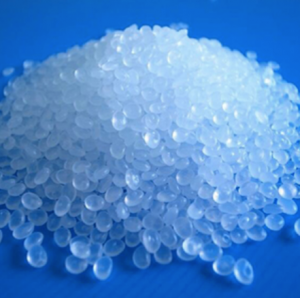
Product Information
ABS resin is one of the five major synthetic resins. It has excellent impact resistance, heat resistance, low temperature resistance, chemical resistance and electrical properties. It also has the characteristics of easy processing, stable product size and good surface gloss. Easy to apply and color, it can also be used for secondary processing such as surface metallization, electroplating, welding, hot pressing and bonding.
It is widely used in industrial fields such as machinery, automotive, electronic appliances, instrumentation, textile and construction. A wide range of thermoplastic engineering plastics.
Technical Specification
| Items | Test Method | Results | Units |
| MFI 220°C / 10 kg | ASTM D-1238 | 25 | g/10min |
| Density | ASTM D-792 | 1.05 | |
| Molding Shrinkage | ASTM D-955 | 0.4 – 0.7 | mm/mm |
| Tensile Strength at Yield | ASTM D-638 | 470 | kg/cm2 |
| Tensile Strength at Yield | ASTM D-638 | 40 | % |
| Flexural Strength | ASTM D-790 | 760 | % |
| Flexural Modulus | ASTM D-790 | 2700 | kg/cm2 |
| Rock well Hardness | ASTM D-785 | 110 | % |
| Notched Izod Impact Strength | ASTM D-256 | 24 | Kg.cm/cm |
| HDT | ASTM D-648 | 89 | °C |
| Vicat Softening Point | ASTM D-1525 | 94 | °C |
| Flammability | UL-94 | HB |